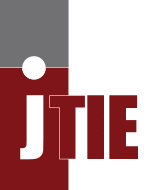Journal of Technology and Information Education 2021, 13(1):135-149 | DOI: 10.5507/jtie.2021.014
MOŽNOSTI PODVÁDĚNÍ V ONLINE VÝUCE NA VYSOKÉ ŠKOLE V OBDOBÍ PANDEMIE COVID-19
- 1 Západočeská univerzita v Plzni, Česká republika
- 2 Vysoká škola DTI, Slovenská republika
Vládní omezení aplikovaná s cílem omezit šíření viru způsobující nemoc COVID-19 si vyžádala nucený přechod na distanční výuku v širokém spektru stupňů škol. Vysoké školy připravující budoucí pedagogy nevyjímaje. Výzkum je zaměřen na školní podvádění při online ověřování znalostí u budoucích pedagogů - studentů Učitelství pro mateřské školy a Učitelství pro 1. stupeň základních škol. Dotazníkovým šetřením bylo zkoumáno relativně úzké spektrum možností podvádění - využití tzv. taháku, a to i v jeho elektronické formě. Cílem výzkumu bylo porovnat možnosti a přístupy k podvádění u studentů při prezenčním a online zkoušení. Ačkoliv se jedná o skupiny budoucích pedagogů, tedy o lidi s předpokladem vyššího morálního kreditu, k podvádění docházelo a dochází i teď. Vzorek 121 respondentů nepotvrdil vyšší míru využívání zakázaného prostředku při písemných testech, jak bylo původně předpokládáno. Nárůst je ovšem navzdory očekáváním zřetelný v případě online ústního zkoušení. Výsledky šetření v rámci uvedených skupin respondentů potvrzují do jisté míry obdobné výzkumy např. Reedy a kol., 2021 nebo Chirumamilla a kol. 2020.
Klíčová slova: podvádění, online výuka, testování, vysoká škola, příprava učitelů, prevence podvádění, COVID-19, morální kodex.
Vloženo: 27. duben 2021; Revidováno: 3. srpen 2021; Přijato: 27. duben 2021; Zveřejněno online: 15. září 2021; Zveřejněno: 18. říjen 2021 Zobrazit citaci
| ACS | AIP | APA | ASA | Harvard | Chicago | Chicago Notes | IEEE | ISO690 | MLA | NLM | Turabian | Vancouver |
Reference
- Chirumamilla, A., Sindre, G. & Anh Nguyen-Duc (2020) Cheating in e-exams and paper exams: the perceptions of engineering students and teachers in Norway, Assessment & Evaluation in Higher Education, 45:7, 940-957, DOI: 10.1080/02602938.2020.1719975
 Přejít k původnímu zdroji...
Přejít k původnímu zdroji... - Bajtoš, J., Honzíková, J. & Bajtoš, M. (2020). Hrozby Plagiátorstva počas dištančného štúdia v období pandémie COVID-19. ITEV, 1/2020, 82-87
- Bajtoš, J & Honzíková, J. (2019). Školské podvádzanie z pohľadu učiteľov - pilotné výskumné šetrenie. Arnica, roč. 2019, vyd. 2., 51-58
- Bajtoš, J. & Marhevková, A. (2016). Školské podvádzanie - problémový aspekt hodnotenia výkonov žiakov. Bratislava, Wolters Kluwer. 101 s.
- Bernardi, R. A., Baca, A. V., Landers, K. S. & Witek, M. B. (2008). Methods of Cheating and Deterrents to Classroom Cheating: An International Study. Ethics & Behavior 18(4): 373-391
 Přejít k původnímu zdroji...
Přejít k původnímu zdroji... - Cibulková, A. (2013). Podvádění očima středoškolských učitelů. Masarykova univerzita, Brno. 70 pp.
- Cizek, G. J. (2003). Detecting and Preventing Classroom Cheating: Promoting Integrity in Assessment. Experts in Assessment. Corwin Press, Inc., CA, Thousand Oaks. 173 pp.
- Clark, K. (2008). Taking a Bite Out of Cheating, With the Help of Technology. U.S. News & World Report.
- Eisenberg, J. (2004). To Cheat or Not To Cheat: Effects of Moral Perspective and Situational Variables on Students' Attitudes. Journal of Moral Education 33(2): 163-178
 Přejít k původnímu zdroji...
Přejít k původnímu zdroji... - Garavalia, L., Olson, E., Russel, E. & Christensen, L. (2007). How The Students Cheat? 33-55 In Anderman, E. & Murdosck, T. (eds) Psychology of Academic Cheating. Academic Press, Amsterdam, Boston.
 Přejít k původnímu zdroji...
Přejít k původnímu zdroji... - Gray, P. (2013). Podvádzanie vo vede II: Škola pripravuje pôdu podvádzaniu (nielen) vo vede. Preklad: Sčigulinský, P. Sloboda učenia. 2014. [on line]. [cit 2019-04- 19]. Dostupné na: http://www.slobodaucenia.sk/clanok/ podvadzanie-vo-vede-ii
- Haines, V. J., Diekhoff, G. M., Labeff, E. E. & Clark, R. E. (1996). College Cheating: Immaturity, Lackof Commitment, and the Neutralizing Attitude. Research in Higher Education 25(4): 342-354.
 Přejít k původnímu zdroji...
Přejít k původnímu zdroji... - Havlová, J. (2003). Plagiátorství. In Česká terminologická databáze knihovnictví a informační vědy. Praha: Národní knihovna ČR. [onl ine]. [cit. 2020.04.07]. Dostupné na: http://aleph.nkp.cz/F/?func=direct&doc_number= 000014609&local_base=KTDHarris, L., Harrison, D., McNally, D. et al. Academic Integrity in an Online Culture: Do McCabe's Findings Hold True for Online, Adult Learners?. J Acad Ethics 18, 419-434 (2020). https://doi.org/10.1007/s10805-019-09335-3
 Přejít k původnímu zdroji...
Přejít k původnímu zdroji... - Honzíková, J., Simbartl, P. & Bajtoš, J. (2020). Digitální technologie jako nástroj školního podvádění na střední škole. Journal of Technology and Information Education. Roč. 20. Číslo 2. pp.102-111. DOI: 10.5507/jtie.2020.015
 Přejít k původnímu zdroji...
Přejít k původnímu zdroji... - Kumar, M. J. (2012). Honestly Speaking about Academic Dishonesty. IETE Technical Review 29: 357-358.
 Přejít k původnímu zdroji...
Přejít k původnímu zdroji... - Mareš, J. (2005). Tradiční a netradiční podvádění ve škole. Pedagogika 55(4): 310-335.
- Miller A., Shoptaugh C. & Wooldridge J. (2011). Reasons Not to Cheat, Academic-Integrity Responsibility, and Frequency of Cheating, The Journal of Experimental Education, 79:2, 169-184, DOI: 10.1080/00220970903567830
 Přejít k původnímu zdroji...
Přejít k původnímu zdroji... - Norman, J. & Harris, M. W. (1981). The private life of the American teenager. Wade. California, Rawson. 311 pp.
- Vrbová, J. & Stuchlíková, I. (2012). Školní podvádění starších žáků - pilotní studie. Pedagogika 62(3): 317-331.
- Simkin, M. G. & Mcleod, A. (2010). Why Do College Students Cheat? Journal of Business Ethics 94(3): 441-453.
 Přejít k původnímu zdroji...
Přejít k původnímu zdroji... - Shore, B., Venkatachalam, A. R. (1996). Role of national culture in the transfer of information technology, The Journal of Strategic Information Systems 5(1): 19-35. https://doi.org/10.1016/S0963-8687(96)80021-7
 Přejít k původnímu zdroji...
Přejít k původnímu zdroji... - Sullivan, P. D. (2016). An integrated approach to preempt cheating on asynchronous, objective, online assessments in graduatebusiness classes. Online Learn 20(3):195-209. https://doi.org/10.24059/olj.v20i3.650https://www.vysokeskoly.cz/clanek/v-britanii-roste-pocet-podvodu-behem-distancni-vyuky-vlada-chce-zakazat-weby-pro-objednani-praci-na-zakazkuhttps://www.universitas.cz/ze-sveta/6552-studie-zavedeni-distancni-vyuky-a-zkouseni-vedlo-k-narustu-podvadeni-online
 Přejít k původnímu zdroji...
Přejít k původnímu zdroji... - MUNI 2021, https://www.muni.cz/en/research/projects/59527


